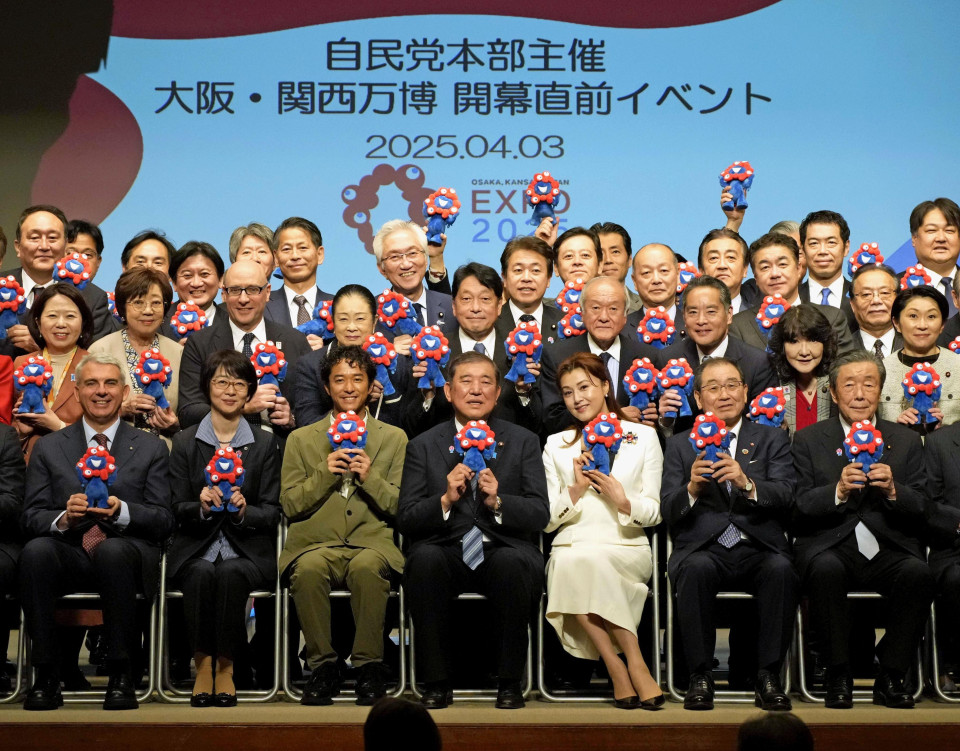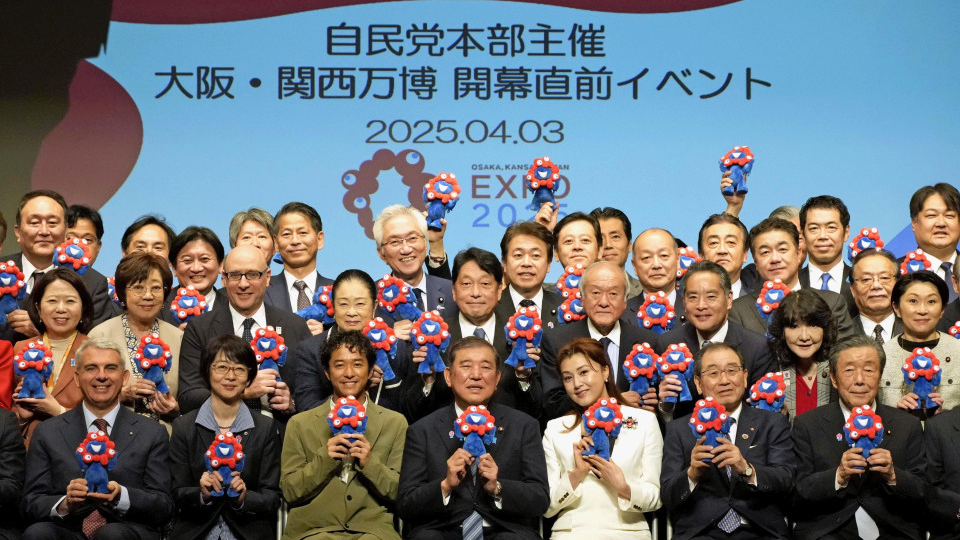Prime Minister Shigeru Ishiba wants the upcoming World Exposition in Osaka that kicks off April 13 to embody “enjoyable Japan,” an expression he uses to describe the vibrant nation he pledges to create, but polls and data show Japanese people do not share the same enthusiasm.
While most of the visitors to the event lasting until Oct. 13 are expected to be domestic, nearly 75 percent of respondents to a recent Kyodo News poll in Japan said they are not interested.
“I want people, young and old, to visit the expo, not just from Japan but also from abroad to discover what an ‘enjoyable Japan’ has to offer,” Ishiba said at a recent press conference.
Ishiba, 68, speaks fondly of the excitement he felt as an eighth grader going to see the then popular Moon rock that was on display at the previous expo held in Osaka in 1970. The sample was taken during the U.S. Apollo 12 mission.

Japanese Prime Minister Shigeru Ishiba (front row, C) poses for a photo at an event to promote the 2025 World Exposition at his Liberal Democratic Party headquarters in Tokyo on April 3, 2025, ahead of the event’s start on April 13 in Osaka. Sitting next to him is actress Norika Fujiwara, honorary head of the Japan Pavilion. (Kyodo)
Ishiba has been using the phrase “enjoyable Japan” this year, in comparison with the “prosperous” Japan that the country aimed to build after its defeat in World War II and during the high-growth period that followed.
The Osaka Expo in 1970 symbolized the country’s rise as an economic power, drawing over 64 million visitors, mostly from Japan.
Half a century later, Japan’s economy, once the world’s second-largest after the United States, has lost that status to China and now ranks fourth behind Germany. Organizers set a ticket sales target of 23 million, including presales of 14 million, though as of late March only 8.5 million have been sold. Over 160 countries, regions, and international organizations are planning exhibitions at pavilions.
While Ishiba leaves room for interpretation when he says he wants to make Japan enjoyable, he has said in such a country people would feel secure and safe, can take on challenges to achieve their dreams and believe that “tomorrow will be brighter than today.”
In a survey conducted by the Nippon Foundation last year targeting people aged between 17 and 19 in Japan, Britain, China, South Korea, India and the United States, only 15 percent of Japanese respondents said they expected their country to improve in the future, the lowest among the six nations.
Related coverage:
3-day test run for Osaka Expo kicks off ahead of April 13 opening
Japan Pavilion in Osaka Expo opens with rare Mars meteorite exhibit



AloJapan.com